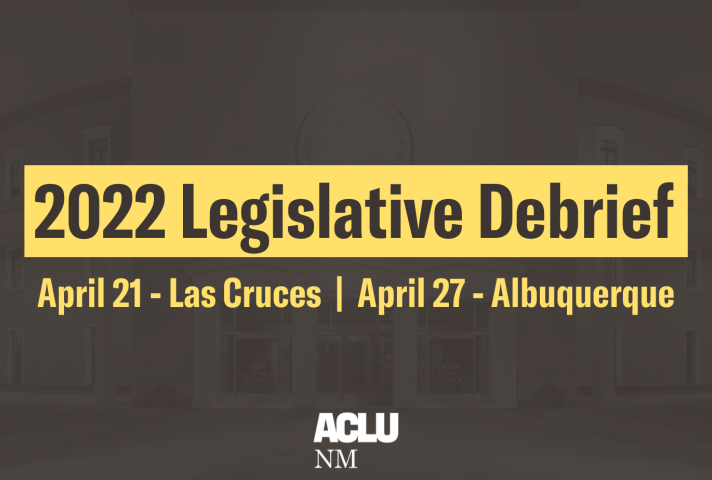Join us on April 21 in Albuquerque at 5:30 p.m. for a discussion with ACLU of New Mexico staff members about the challenges and successes in the 2022 regular legislative session. During this debrief we will talk about our legislative victories, setbacks and how we can continue protecting and advancing civil liberties for all New Mexicans.
The ACLU-NM worked alongside our partner organizations to pass a wide variety of important legislation, including bills creating a gross receipt tax deduction on feminine hygiene products, strengthening the Indian Family Protection Act, and expanding pregnancy-related Medicaid access. We also worked to defeat several antiquated tough-on-crime measures.
During the 2022 legislative session, we also worked hard on powerful legislation such as the Second Chance Bill, the Human Rights Act, and the New Mexico Voting Rights Act that fell victim to a lack of political will and time.
The meeting will be held in English. Spanish and American Sign Language interpretation is available upon request. Please note on the form when RSVP'ing that you are requesting interpretation. Light snacks will be provided. Mask wearing is encouraged.
Event Date
Wednesday, April 27, 2022 - 5:30pmFeatured image
